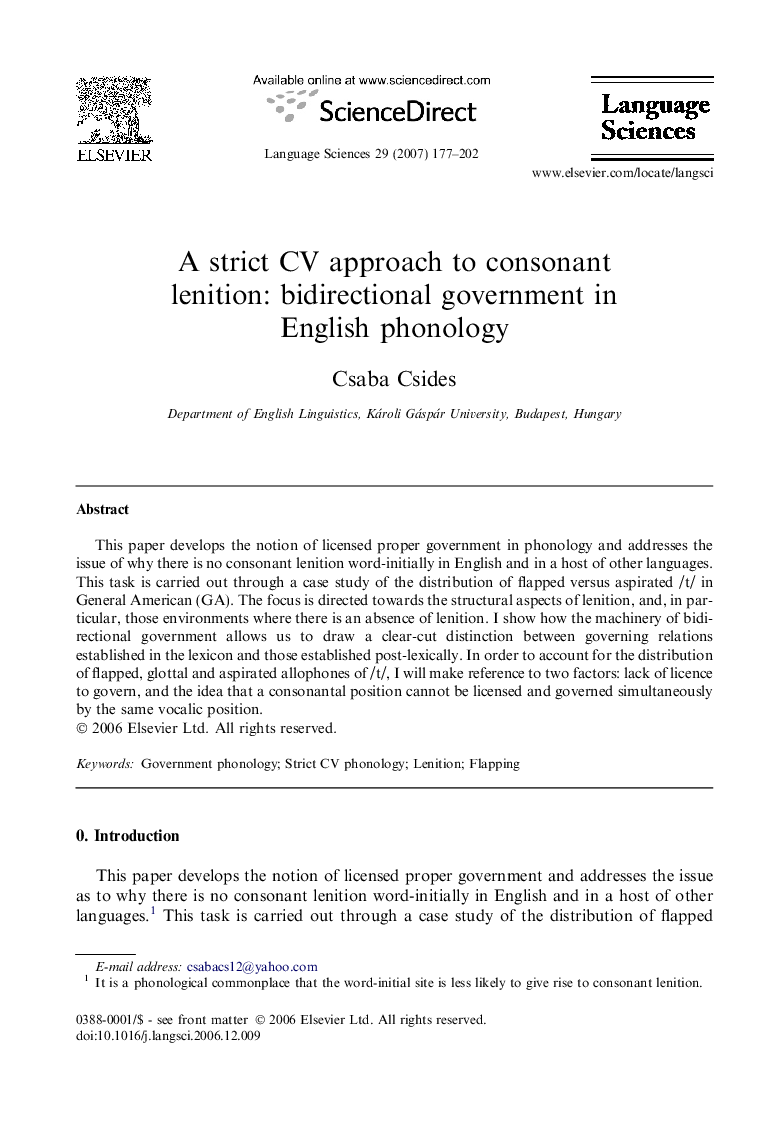| Article ID | Journal | Published Year | Pages | File Type |
|---|---|---|---|---|
| 1103410 | Language Sciences | 2007 | 26 Pages |
Abstract
This paper develops the notion of licensed proper government in phonology and addresses the issue of why there is no consonant lenition word-initially in English and in a host of other languages. This task is carried out through a case study of the distribution of flapped versus aspirated /t/ in General American (GA). The focus is directed towards the structural aspects of lenition, and, in particular, those environments where there is an absence of lenition. I show how the machinery of bidirectional government allows us to draw a clear-cut distinction between governing relations established in the lexicon and those established post-lexically. In order to account for the distribution of flapped, glottal and aspirated allophones of /t/, I will make reference to two factors: lack of licence to govern, and the idea that a consonantal position cannot be licensed and governed simultaneously by the same vocalic position.
Keywords
Related Topics
Social Sciences and Humanities
Arts and Humanities
Language and Linguistics
Authors
Csaba Csides,
